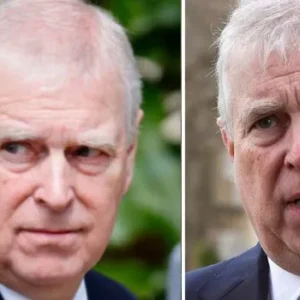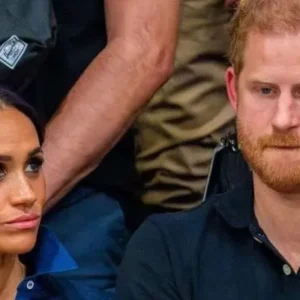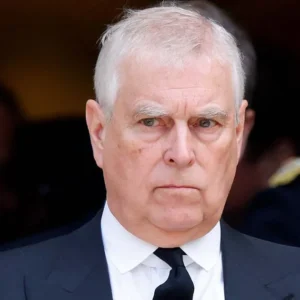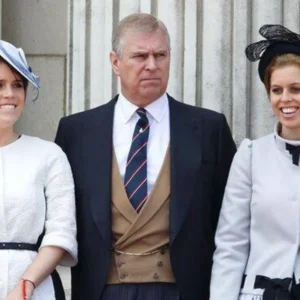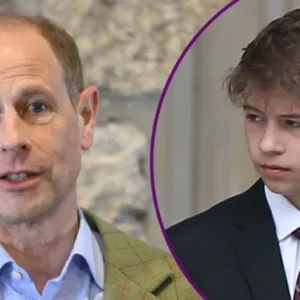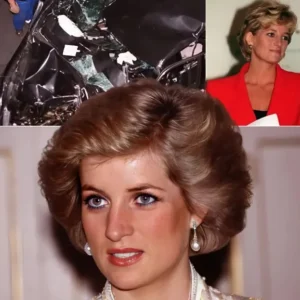When it comes to misrepresentations and cover-ups, the current BBC crisis isn’t Tim Davie’s first rodeo. The Trump imbroglio may have been what made the BBC’s outgoing director-general hang up his hat, but in fact, his time in the role has been bookended by Panorama scandals.
In 2020, in his first week in the role, he was informed that the Martin Bashir scandal was about to erupt. And now, as he leaves it, the journalist Andy Webb has chucked a load of petrol on the bonfire with his extraordinary new book Dianarama: The Betrayal of Princess Diana, which investigates the sorry saga.
The explosive interview in November 1995 between Bashir and Diana, Princess of Wales, watched by 23 million people, was to the 1990s what Andrew’s 2019 Newsnight chat with Emily Maitlis has been to the present day. In fact, if anything, the Panorama interview was far more consequential, according to Webb.

Webb, an investigative journalist and documentarian, believes that if the interview had never happened, Diana may not have died as she did. “Because of what Martin Bashir had done in 1995,” he writes, “and more importantly because it had then been covered up, Diana’s life had been sent off on a terribly dangerous course, resulting in her death.”
Punchy stuff. It’s tempting, at the outset, to suspect Webb of amplifying an incident that, sordid as it was, didn’t have the import he suggests. Thanks to Webb, who laid these matters out in 2020 after two decades of research, we now know that Bashir deceived Diana in arranging the interview by using faked bank statements to gain her brother’s, and therefore her, trust. We know, too, that the BBC buried the scandal. In fact, it turned out the corporation went to great lengths to hide internal communications that would have incriminated earlier BBC bosses.
Nonetheless, is it really true that Prince William’s whole life “has been shaped by what the BBC did to his mother”? Are we to believe that our national broadcaster is thoroughly duplicitous? Has Webb actually written, as he suggests, “a first draft of history”?

As this meticulously researched and carefully crafted book unfolds, walking us through a 30-year timeline, it becomes horribly clear that he has. Certainly Webb is right that the Panorama interview carried more weighty implications than anyone realised at the time – not just for Diana’s marriage, or for the life of the man who is now our King, but also for the reputation of our national broadcaster. It has transformed our sense of that supposedly august institution’s attitude to truth.
Charles and Diana had separated in 1992. Their marriage, and its failure, has been raked over so many times that it seems impossible to imagine there being anything new to learn. Nevertheless, Webb manages to offer some fascinating nuggets, especially if you aren’t an obsessive.
Diana’s famous “there were three of us in this marriage” line did not, as people often think, refer to Camilla Parker-Bowles but to Tiggy Legge-Bourke, with whom Bashir had convinced Diana that Charles was having an affair (and whom he told Diana that Charles had impregnated).
And in the Jonathan Dimbleby interview of 1994 – which spurred Diana into giving her own side of the story – Charles initially refused to talk about his relations with Camilla. It was only when ITV went back and leant on the then-Prince of Wales that he made his confession of adultery, against advice from Max Hastings, then editor-in-chief of this newspaper, whom Webb has interviewed.

Webb’s sources, in fact, are impeccable. We’re given behind-the-scenes information from everyone, from Earl Spencer, Diana’s brother, to what may be Prince William himself. (Although Webb obviously can’t name the present heir to the throne, he makes fairly strong hints.)
This authority then gives Dianarama the latitude to include every little detail surrounding the affair, no matter how delightfully odd. Webb isn’t averse, for example, to indulging, with some side-eye, the conspiracy theories surrounding Diana’s death. “There is no certainty even today [as to] whether Squidgygate was part of a plot pulled together by spooks, or a crazy bit of happenstance unkindly targeting a very unlucky princess,” he writes, before going on to spell out all the reasons that the emergence of phone calls between Diana and her lover, James Gilbey, may have been a spook-led plot.
Webb has an endearing soft spot for Diana. We learn that he keeps a small photograph of her Blu-Tacked to the corner of his computer screen “to keep in mind what it was really all about”. He observes that it’s difficult, now, to know how to feel about the Panorama interview, because “the bad smell that hangs over the interview has robbed Diana of her voice in the segments where she actually did have something very valuable to say”. But he doesn’t take sides in the royal dispute, and has no obvious beef with the now-King.
All his ire is instead directed at two targets: Bashir and the BBC. For even when the corporation found out that Bashir had lied, faked and forged his way into Diana’s Kensington Palace apartment, it refused to let light in on the truth.

The first part of Dianarama deals with the background to the event and the interview itself, which Webb compares to “a hostage video… only showable if we are allowed to see the tribesmen and Kalashnikovs too, in wide shot”. Then he turns his attention to Auntie, listing the corporation’s twists and turns as it seeks to cover its back after the story of Bashir’s duplicity begins to emerge. The dismissal of the whole idea of forgeries; the shabby treatment of the whistleblower; the disappearance of crucial incriminatory documents; the pretence of ignorance by senior management; the spreading of misinformation by BBC press officers; the cover-up that lasted more than a quarter of a century. Even the Dyson Inquiry, which in 2021 condemned Bashir, worked to the BBC’s advantage: the inquiry didn’t examine how the BBC covered up the scandal for 25 years, or who was responsible for the cover-up. Webb dismisses Lord Dyson’s findings as “a menu for historians, not a meal”, pointing the way without actually providing the meat.
Webb has skin in the game: his pursuit of this story ended in a three-year legal battle he waged with the BBC over Freedom of Information requests. He has been at the sharp end of the corporation’s obfuscation, and spent years of his life fighting it; it’s not surprising he wants to stick the knife in. But this only brings the book up to date, and makes it relevant – not just in surveying the underhand way in which the BBC sought to cover up Bashir’s misdeeds, but the way in which it frustrated Webb’s pursuit of the truth.

The BBC incurred almost £600,000 in external legal costs, Webb writes. He estimates that probable internal costs brought the total to some £1m of licence-fee-payers’ money – all to try to stop Webb reading a cache of historic emails. And, repeating its past behaviour, the corporation first sought to withhold information, then declared it had discovered some information that could be released, then said it couldn’t release it after all, then suddenly discovered 3,288 pieces of correspondence to share, then covered that correspondence in redactions so it couldn’t be examined in full. As Charles Moore, writing in The Spectator at the time, put it: “The BBC has managed to build up… a haystack so huge that it could hide any possible needles.”
Towards the end of his book, Webb mentions that he took inspiration for his campaign from Sir Alan Bates, the Post Office campaigner who fought for years for justice. It’s a good comparison. Both stories involved institutions that are venerable, trusted, part of the fabric of British life; institutions on whom its citizens rely; institutions that messed up, lied about it and sought to point the finger of blame elsewhere.
Some readers might look at Dianarama, shrug and think it old history. But as Webb correctly reminds us: “What I think the BBC does not appreciate is that this is a story which will not go away.” Royal scandals – as Andrew Mountbatten-Windsor might tell you – have a habit of continuing to attract publicity. Webb has just reopened a writhing can of worms.
